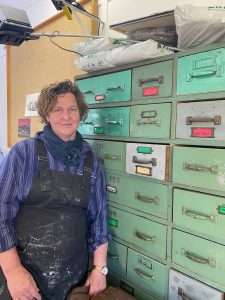Taiji's annual dolphin hunt
 By RACHEL PACKHAM
By RACHEL PACKHAM
The 14th of October was an international day of action against Japan’s annual dolphin hunt. Protests were held in Canberra and other cities around the world.
Where does the dolphin hunt take place?
The dolphin hunt happens every year in the small fishing village of Taiji, in Japan. It takes place from the 1st of September through to March. The annual hunt gained international attention last year when it was the subject of the 2009 Academy Award winning documentary The Cove. Since the film was released, thousands of letters and emails have been sent to the Japanese government, but the hunt continues. It is the largest scale slaughter of cetaceans in the world.
Is the dolphin hunt legal?
Yes, the Japan Fisheries Agency issued 23,000 permits to kill dolphins and other small whales this season. The Earth Island Institute of Berkeley, California, believes that the hunt remains legal as it is kept quiet, the majority of people in Japan are unaware of the dolphin hunt.
How are the dolphins killed?
The president of Animal Liberation ACT, Jo Morgan, has recently returned from Japan. She saw first hand what is happening in Taiji. Ms Morgan said the fishermen herd the dolphins into a hidden cove by affecting their sense of direction. When dolphins are spotted, long metal pipes are put into the water, fishermen bang on the pipes creating a wall of sound. The sound disorients the dolphins, they swim away from the sound and are herded into the bay. Nets are drawn across the bay to keep them penned in.
“What they do is injure one of the dolphins so that its family members will stay around to protect it. That’s why they don’t leave and don’t attempt to escape, to protect one of their own,” Ms Morgan said. “Once trapped inside the cove, the fishermen kill the dolphins, slashing their throats with knives and stabbing them with spears. The water turns red with their blood, and the air fills with their screams.”
Are the dolphins hunted for their meat?
Officially, the main purpose of the hunt is for food. However, according to the Earth Island Institute, only a very small minority of people in Japan actually eat dolphin meat. Ms Morgan said, “It is often mislabelled as whale meat due to the belief that dolphin meat is an inferior flesh to that of a whale.”
The Earth Island Institute believe the thousands of dolphins killed every year are not killed for food, but as a form of pest control, they said, “The Taiji fishermen claim that dolphins eat too much fish and therefore must be exterminated.”
Ms Morgan said not all of the dolphins are killed, “This industry is fuelled by the animal entertainment industry, which captures dolphins and places them in amusement parks or petting zoos for human entertainment. The select few ideal dolphins are captured for this industry and the other dolphins are not so lucky to be kept alive, they are slaughtered for their meat. A dolphin that is kept in captivity and exploited for human entertainment is worth up to $155,000 to the Japanese fishermen, the dolphins that are slaughtered for their meat are worth a mere $700.”
How is the dolphin slaughter any different from the slaughter of cows and pigs in Australia and other Western countries?
The fishermen claim that there is no difference. The Japan Fisheries Agency argues that bottlenose dolphins and the other dolphin species that are killed are not endangered. The government of Taiji released a statement that said the dolphin hunt is part of their tradition. Fishermen say an attack on this industry is an attack on their culture.
Many dolphin activists would like to see an end to the methods used in Western slaughterhouses as well, but they argue that the way in which dolphins are killed is particularly brutal.
The founder of the Sea Shepherd Conservation Society, Captain Paul Watson said, “There is no abattoir in the world that would condone the abject cruelty of the Taiji slaughter where the animals are struck with clubs, speared in different areas of their body repeatedly, slashed and drowned, choking on their own blood.”
Ms Morgan said that dolphin meat is extremely high in mercury. “This is a dangerous chemical and not good for human consumption,” she said. “Much of this tainted dolphin meat ends up as counterfeit whale meat in Tokyo and other large cities….It is also included in children’s school lunch programs.”
The Earth Island Institute believes that the Japanese people have a right to know what they are eating and what is being fed to their children at school.
Does the hunt look set to continue?
The mayor of Taiji has stated that as long as he is in office, the dolphin hunt will continue. A small group from Sea Shepherd have been in Taiji since the season commenced in an attempt to raise public awareness and to film the activities of the fishermen. Since the Japanese release of The Cove in July this year, the Sea Shepherd crew have noticed an increase in support of their campaign (pictured) from the Japanese people.


Be the first to comment!